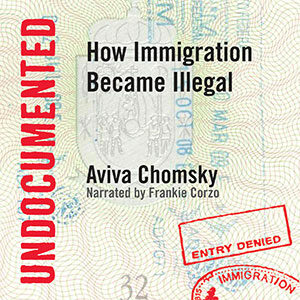Share
I conducted an online survey of the second migrant generation as a result of intercultural marriage. The questionnaire consisted of 20 questions: 6 questions based on the person and his/her parents, and the language of communication. The other 14 questions were in the form of affirmative sentences with the answer choices never, rarely, often and always.
My questionnaire allowed me to highlight the correlation between the language spoken between the second generation migrant and his or her parent from another culture, and the feelings of belonging he or she has towards his or her parent’s culture.
Firstly, the link between the language spoken and feeling close to one’s parent’s origin
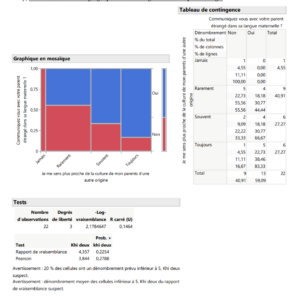
Given the small number of respondents, we have a suspect chi, which could mean that there is a link between language and belonging to the other culture.
Language and communication difficulties
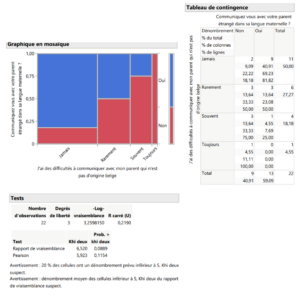
Given the small number of respondents, we have a suspect chi, which could mean that there is a link between language spoken and the difficulties of communication and understanding.
Language and the language in which the parent from another culture speaks to them
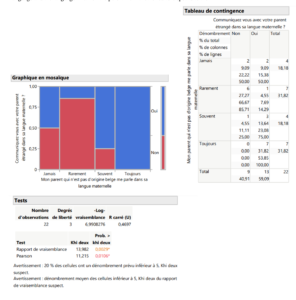
It is obvious that, because the Chi-square is less than 0.05, the language variable has a direct influence on the language in which the parent of the different culture speaks to him. This is logical since they both speak in the language of their parent.
Language and identity between those 2 cultures
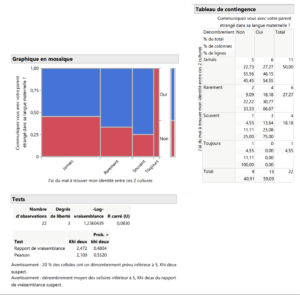
Given the small number of respondents, we have a suspect chi, which could mean that there is a link between language spoken and the difficulties to fit in one of those two cultures.
In view of the number of graphs and tables, I thought it would be more appropriate to state the parameters that, following the calculation of the Chi-square, are correlated. Many chi-square tests between variables have a warning that suggests a link, however due to the small number of responses, only 20% would be considered as such.
However, the graph on page 33-35 of the pdf document that compares language spoken and cultural detachment suggests that there may be a connection between cultural detachment and second-generation migrants who do not speak their parents’ native tongue. Besides most of the second migrant generation who does not speak the language regrets not speaking it (page 36- 38). Morover, those second migrant generation have no ties to the other culture and feel 100% Belgian.
To summarize, the results of this survey cannot be trusted due to the small number of respondents and the question selection, which is neither appropriate nor clear.


